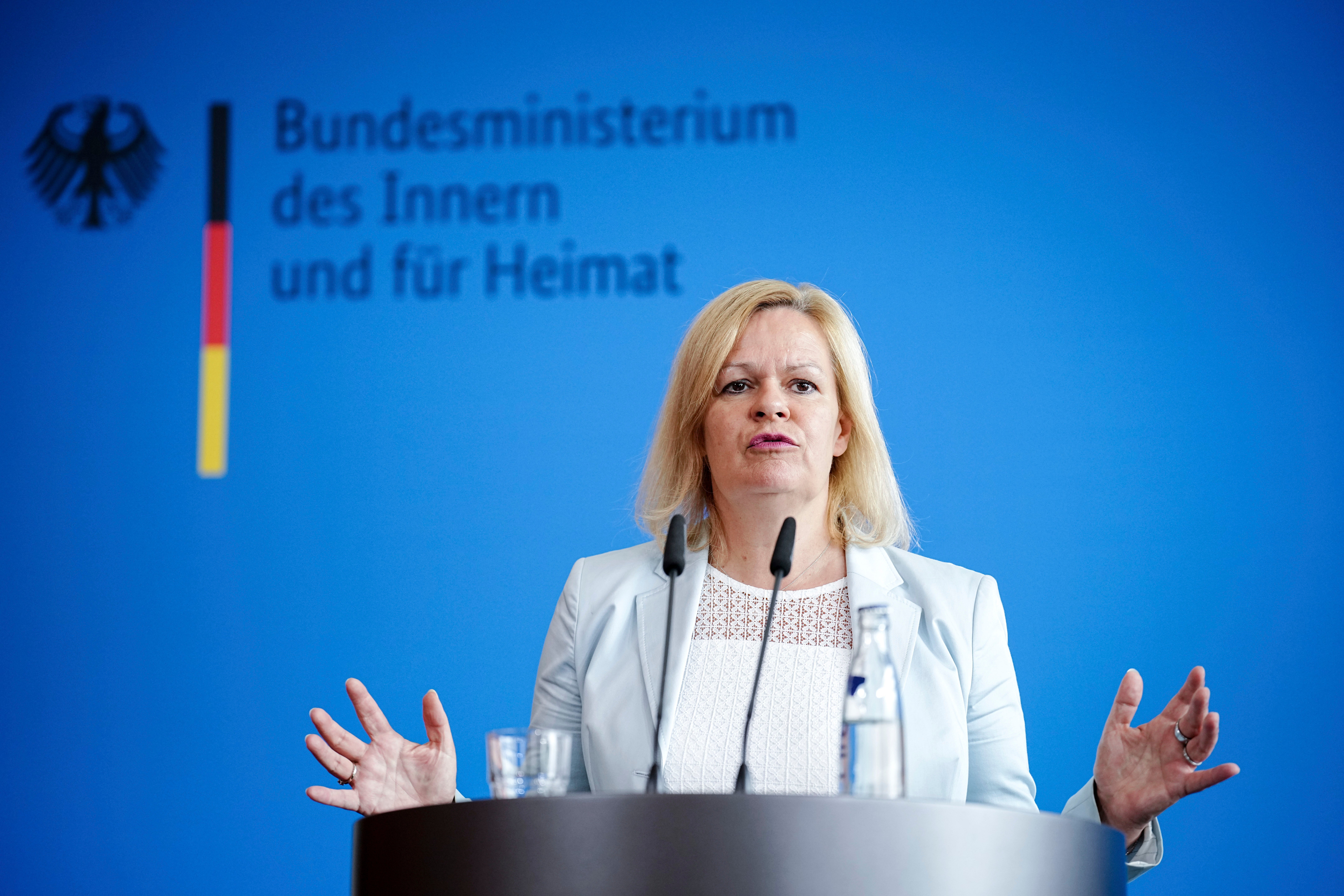Germany eases path to permanent residency for migrants
Tens of thousands of migrants, who have been living in Germany for years without a secure stay permit, will be eligible for permanent residency due to a new migration bill

Your support helps us to tell the story
From reproductive rights to climate change to Big Tech, The Independent is on the ground when the story is developing. Whether it's investigating the financials of Elon Musk's pro-Trump PAC or producing our latest documentary, 'The A Word', which shines a light on the American women fighting for reproductive rights, we know how important it is to parse out the facts from the messaging.
At such a critical moment in US history, we need reporters on the ground. Your donation allows us to keep sending journalists to speak to both sides of the story.
The Independent is trusted by Americans across the entire political spectrum. And unlike many other quality news outlets, we choose not to lock Americans out of our reporting and analysis with paywalls. We believe quality journalism should be available to everyone, paid for by those who can afford it.
Your support makes all the difference.Tens of thousands of migrants, who have been living in Germany for years without long-lasting permission to remain in the country, will be eligible for permanent residency after the government approved a new migration bill Wednesday.
The new regulation, endorsed by the Cabinet, applies to about 136,000 people who have lived in Germany for at least five years by Jan. 1, 2022.
Those who qualify can first apply for a one-year residency status and subsequently apply for permanent residency in Germany. They must earn enough money to make an independent living in the country, speak German and prove that they are “well integrated” into society.
Those under the age of 27 can already apply for a path to permanent residency in Germany after having lived in the country for three years.
“We want people who are well integrated to have good opportunities in our country," Interior Minister Nancy Faeser told reporters. “In this way, we also put an end to bureaucracy and uncertainty for people who have already become part of our society.”
The new migration regulation will also make it easier for asylum-seekers to learn German — so far only those with a realistic chance of receiving asylum in the country were eligible for language classes — with all asylum applicants getting the chance to enroll in classes.
For skilled laborers, such as information technology specialists and others that hold professions that are desperately needed in Germany, the new regulation will allow that they can move to Germany together with their families right away, which wasn’t possible before. Family members don't need to have any language skills before moving to the country.
“We need to attract skilled workers more quickly. We urgently need them in many sectors,” Faeser said. “We want skilled workers to come to Germany very quickly and gain a foothold here.”
The bill will also make it easier to deport criminals, includes extending detention pending deportation for certain offenders from three months to a maximum of six months. The extension is intended to give authorities more time to prepare for deportation, such as clarifying identity, obtaining missing papers and organizing a seat on an airplane, German news agency dpa reported.
“In the future, it will be easier to revoke the right of residence of criminals,” Faeser said. "For offenders, we will make it easier to order detention pending deportation, thus preventing offenders who are obliged to leave the country from going into hiding before being deported.”
___
Follow all AP stories on global migration at https://apnews.com/hub/migration